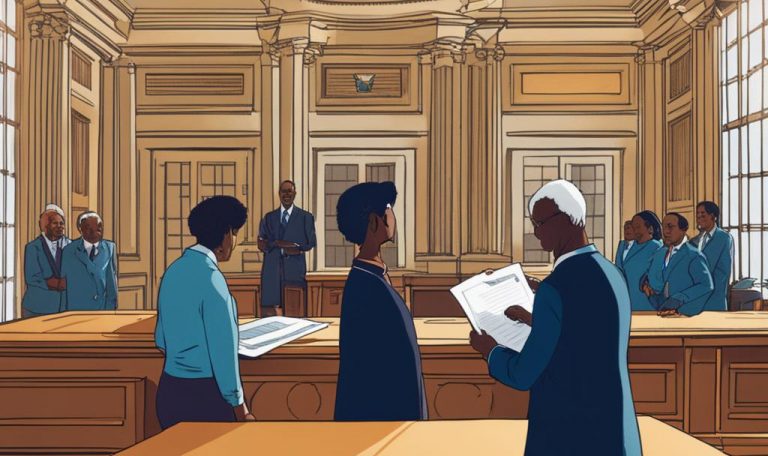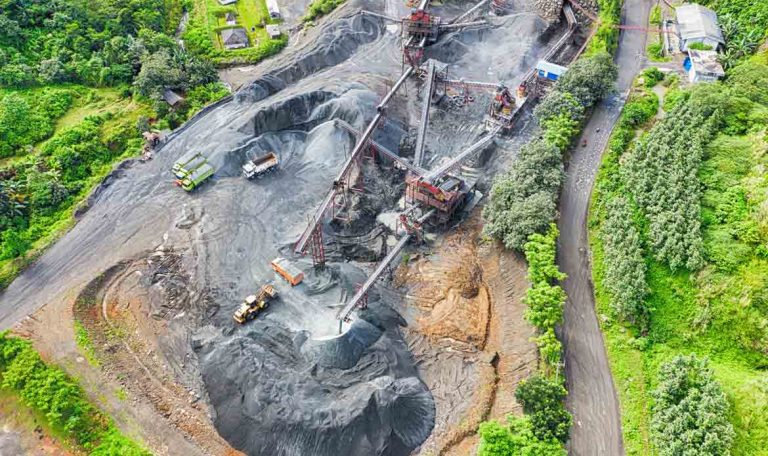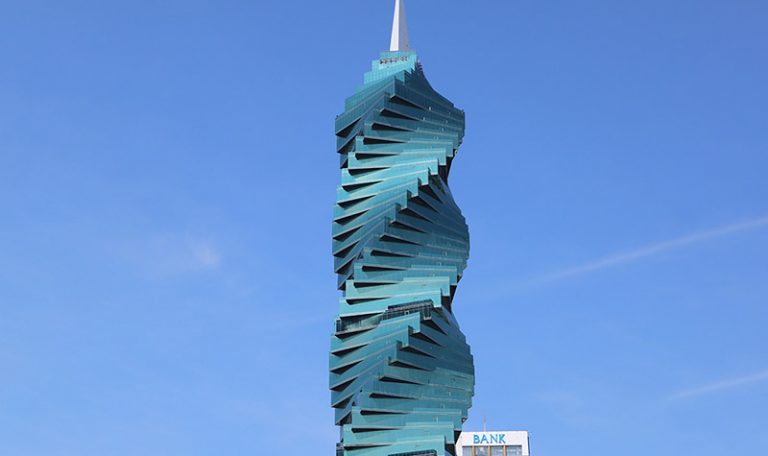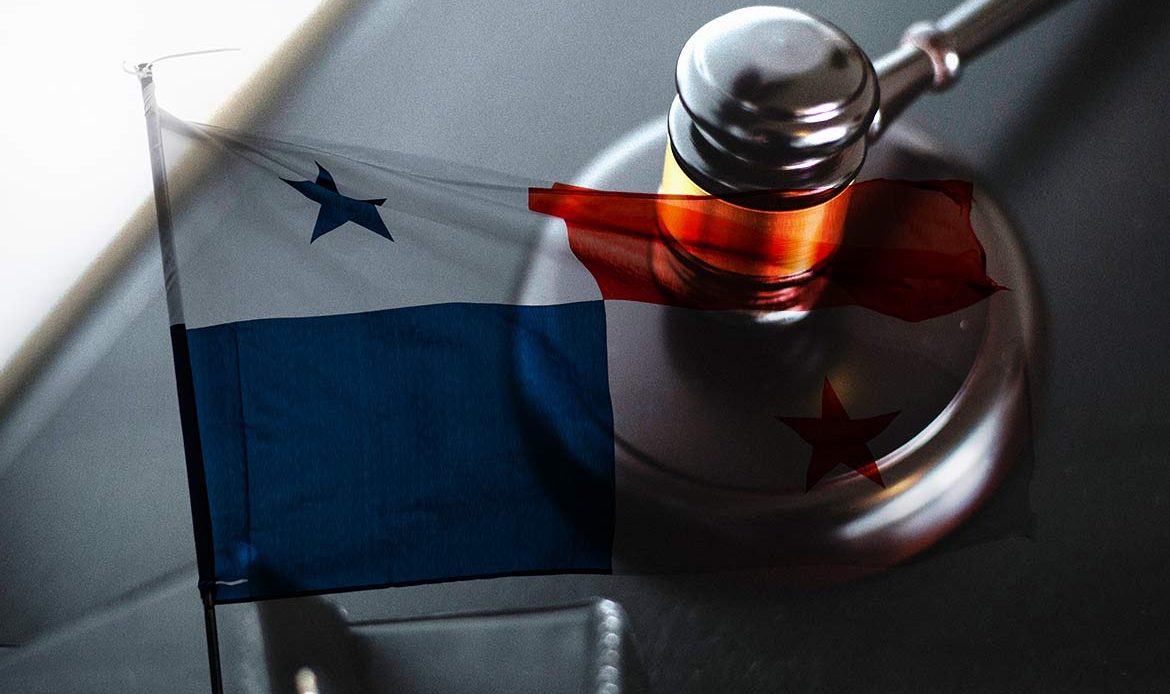In a landmark decision that has sent ripples across both environmental and economic landscapes, Panama’s Supreme Court has made a bold move, striking down a crucial mining contract as unconstitutional. Is this the end of the mining crisis in Panama?! This ruling against the agreement with First Quantum Minerals, a major player in the global mining industry, marks a significant turning point for Panama. It highlights the intricate balance between economic development and environmental preservation. The decision, emerging amidst a backdrop of widespread protests and international attention, not only shakes the foundations of Panama’s mining industry but also sets a precedent for how resource-rich countries might navigate the complexities of economic growth and ecological stewardship. As we delve into the nuances of this groundbreaking event, it’s crucial to understand the multi-dimensional impacts that led to this momentous decision.
Key Takeaways:
- Panama’s Supreme Court has declared a mining contract with Canadian company First Quantum Minerals unconstitutional.
- The contract was for operating Central America’s largest open-pit copper mine for 20 years, extendable for another 20 years.
- Nationwide protests in Panama were sparked by environmental concerns and terms of the deal.
- The Supreme Court’s decision was unanimous, citing the entire law governing the contract as unconstitutional.
- This ruling followed the largest protests in Panama since 1989, with significant economic impacts.
- First Quantum Minerals has expressed intent to pursue arbitration claims but prefers dialogue.
- The company’s operations significantly contribute to Panama’s GDP and employment.
- The controversy is influencing Panama’s upcoming presidential election, with calls for more state control of mining operations.
- Panama’s government enacted a bill banning new mining concessions in response to the protests.
1. Historic Ruling: Panama’s Supreme Court Declares Major Mining Contract Unconstitutional
The Unanimous Verdict of the Court
In a groundbreaking judgment on November 28, 2023, Panama’s Supreme Court rendered a verdict that has sent shockwaves across the nation and beyond. The court unanimously declared that the law governing the contract between the Panamanian government and Canadian mining giant First Quantum Minerals was unconstitutional. This decision directly impacts the operation of Central America’s largest open-pit copper mine, a project of significant economic and environmental consequence.
Deliberation and Decision Making
The court’s ruling came as a climax to a series of events that started with the approval of Law 406. This law permitted First Quantum Minerals to operate the Cobre Panama mine for an initial 20 years, with an option to extend for another 20. The decision was not taken lightly, following four days of intense deliberation among the nine members of the court. Supreme Court President Maria Eugenia Lopez highlighted the unanimous nature of the decision, emphasizing the court’s commitment to upholding constitutional principles.
Impact on Panama’s Environmental and Legal Landscape
This ruling marks a pivotal moment in Panama’s legal and environmental history. It overturns a decision that had been hotly contested in the public sphere, reflecting the power of judicial review in shaping national policy, especially in matters that weigh heavily on environmental sustainability and economic development.
Public Outcry Leading to Judicial Review
The Supreme Court’s decision did not emerge in a vacuum. It was preceded by widespread public discontent and protests across the nation. Citizens, environmentalists, and indigenous groups raised their voices against the perceived environmental threats posed by the mine, as well as the terms of the agreement, which many saw as unfavorable to the Panamanian people. These protests, some of the largest since the fall of dictator Manuel Antonio Noriega in 1989, were a testament to the deep-seated concerns among the populace regarding the stewardship of their natural resources.
The Role of the Judiciary in National Governance
The court’s declaration that the entire law governing the contract was unconstitutional is a clear indication of the judiciary’s role as a check and balance in the governance of Panama. It underscores the importance of constitutional compliance in matters of national significance, especially when they intersect with public welfare and the environment.
“We have decided to unanimously declare unconstitutional the entire law 406 of October 20, 2023,” Supreme Court President Maria Eugenia Lopez said.

2. The Economic and Environmental Stakes: Understanding Panama’s Copper Mine Controversy
Economic Implications of the Mine
The controversy surrounding the Cobre Panama mine, operated by First Quantum Minerals, goes beyond legalities, deeply entrenching itself in Panama’s economic landscape. This mine, contributing significantly to Panama’s Gross Domestic Product (GDP), is a cornerstone of the nation’s economy. The contract with First Quantum Minerals was expected to bring in a minimum annual contribution of $375 million to the state, a substantial increase from the initial agreement. Moreover, the mine’s operations were crucial for thousands of jobs, with 8,000 immediate and 40,000 indirect employment opportunities tied to it.
Environmental Concerns and Public Unrest
However, the economic benefits came with mounting environmental concerns. Critics of the mine pointed out the potential destruction of forest areas in a key biological corridor linking Central America and Mexico. The mine’s large-scale open-pit design heightened fears over its environmental footprint, sparking nationwide protests. The public outcry was not just about the environmental impact but also about the transparency and fairness of the deal struck with First Quantum Minerals.
Balancing Economic Growth with Environmental Protection
This situation highlights the complex balance between economic growth and environmental conservation. Panama’s decision to greenlight the mine initially was seen as a move to boost its economy, particularly important for a country strategically positioned but heavily reliant on specific industries like the Panama Canal. However, the ensuing protests and the Supreme Court’s ruling have forced a re-evaluation of how such economic activities might be at odds with environmental stewardship and public sentiment.
The Future of Mining and Development in Panama
The future of mining in Panama now hangs in the balance. With the government’s response to the protests, including a ban on new mining concessions, the country seems to be at a crossroads. It must decide how to navigate the twin challenges of economic development and preserving its rich biodiversity. This decision will not only affect the mining sector but also set a precedent for how Panama approaches major developmental projects in the future.

3. National Response: Protests and Political Repercussions in Panama
The Scale and Impact of Protests
The Supreme Court’s ruling on the First Quantum Minerals contract came against a backdrop of significant national unrest. The protests, which are the largest Panama has witnessed since the fall of Manuel Antonio Noriega in 1989, reflect a deep-seated dissatisfaction among various segments of society. These protests, characterized by roadblocks including on the Pan-American Highway, have led to reported losses exceeding $1.7 billion, indicating the extent of their impact on the national economy and daily life.
Environmental Activism at the Forefront
Key to these protests were environmental concerns. Activists and environmental groups played a pivotal role in mobilizing public opinion and drawing attention to the potential ecological impacts of the mine. Figures like environmentalist Raisa Banfield became prominent voices, framing the debate not just in terms of economic gain, but in the broader context of environmental stewardship and sustainable development.
Political Responses and Social Media Dynamics
The response from Panama’s political leadership, particularly from President Laurentino Cortizo, who stated his intention to abide by the Supreme Court’s decision, indicates the government’s sensitivity to public opinion and judicial authority. The protests and subsequent ruling have also been a significant topic on social media, further amplifying public sentiment and influencing political discourse. This digital aspect of the protests represents a modern dimension of civic engagement, where online platforms serve as amplifiers of public opinion and catalysts for political change.
Precedent for Future Political Movements
These events have set a precedent in Panama for how public opinion and environmental concerns can influence major political and legal decisions. The protests have also begun to shape the discourse in the run-up to the 2024 presidential election, with candidates increasingly focusing on issues of environmental protection and state control of natural resources. This shift in political priorities underscores the growing importance of environmental issues in national politics.
Long-term Implications for Governance
The situation underscores a critical challenge for Panama’s governance: balancing the need for economic development with environmental conservation and public opinion. The way the government and political candidates respond to these issues going forward will be crucial in determining the country’s path in both economic and environmental policy.
4. First Quantum Minerals: Company’s Reaction and Future Prospects
Initial Response to the Supreme Court Ruling
Following the Panama Supreme Court’s declaration of the mining contract’s unconstitutionality, First Quantum Minerals faced a significant setback. The company acknowledged the ruling and reiterated its commitment to regulatory compliance in Panama. However, it also expressed its intention to wait for the official publication of the ruling before making further comments. This cautious approach indicates the company’s awareness of the delicate legal and political situation.
Economic Impact on First Quantum Minerals
The ruling and the associated protests have had a profound impact on First Quantum Minerals, both reputationally and financially. The company’s shares experienced a noticeable drop, reflecting investor concerns about the future of the Cobre Panama mine. With the suspension of mining activities, there has been a substantial financial impact, considering the mine’s significant contribution to the company’s global revenue and copper production.
The Path to International Arbitration
First Quantum Minerals has indicated its intent to pursue arbitration claims under the free trade agreement between Panama and Canada. This move towards international arbitration highlights the complex nature of multinational corporate agreements and the legal challenges that can arise in the face of national legal rulings. The company’s previous experiences, such as its dealings in the Democratic Republic of Congo, may inform its strategy in navigating this challenging situation.
Future Operations and Stakeholder Engagement
The company’s future in Panama now hinges on multiple factors, including potential new negotiations, the outcome of international arbitration, and its ability to engage with various stakeholders, including the Panamanian government, environmental groups, and the local community. First Quantum Minerals’ approach to these challenges will be critical in determining its future operations, not just in Panama but in its global mining activities.
Broader Implications for Mining Industry Practices
This situation also raises broader questions about the practices of the global mining industry, particularly in developing countries. Issues of environmental impact, fair economic return to host countries, and ethical business practices are at the forefront. How First Quantum Minerals addresses these challenges could set a precedent for the industry, influencing how mining companies operate in sensitive environmental and socio-economic contexts.
5. Impact on Panama’s Economy and Global Copper Market
The Economic Role of the Cobre Panama Mine
The Cobre Panama mine, operated by First Quantum Minerals, plays a substantial role in Panama’s economy, contributing about 5% to the nation’s Gross Domestic Product (GDP). This large-scale mining operation was not only a significant source of revenue for the government but also a major employer. The suspension and potential closure of the mine following the Supreme Court’s ruling therefore have far-reaching implications for Panama’s economic landscape.
Disruptions in the Global Copper Market
The Cobre Panama mine accounts for approximately 1% of global copper production. Its disruption has implications that extend beyond Panama’s borders, influencing the global copper market. The court ruling has already been reflected in fluctuations in copper prices on the London Metal Exchange, indicating the mine’s importance in the global supply chain of this essential industrial metal.
Financial Market Reactions
The uncertainty surrounding the mine has also affected financial markets, with significant declines in First Quantum Minerals’ stock value. This reaction underscores the interconnected nature of global economics, where local decisions can have international market ramifications. The situation in Panama serves as a reminder of the volatility that political and legal decisions can introduce into global commodity markets.
Broader Economic Considerations for Panama
For Panama, the future of the Cobre Panama mine raises questions about the country’s economic diversification and reliance on specific industries. The government’s response to the court’s ruling, including its approach to mining and environmental policies, will be crucial in determining Panama’s economic stability and growth prospects. The balance between economic development and environmental preservation remains a key challenge for the Panamanian government.
Long-Term Implications for Investment in Panama
The ruling and subsequent government actions could potentially influence the perception of Panama as a destination for foreign investment, particularly in the mining sector. J.P. Morgan’s warning about the potential impact on Panama’s investment-grade rating underscores the significance of this issue. The way Panama navigates this situation will be closely watched by investors and could set a precedent for how the country manages foreign investments and natural resource exploitation in the future.
6. Legal and International Implications: Arbitration and Diplomacy in Focus
The Route to International Arbitration
In the wake of the Supreme Court’s decision, First Quantum Minerals’ indication of pursuing arbitration under the free trade agreement between Panama and Canada introduces a complex international legal dimension. International arbitration, often a lengthy and unpredictable process, involves navigating a web of legal frameworks and diplomatic sensitivities. This move underscores the challenges multinational companies face when national laws impact their operations.
Diplomatic Considerations
The situation also brings diplomatic considerations into play. Canada and Panama, bound by trade agreements and diplomatic ties, will find themselves navigating a delicate balance between respecting national legal processes and protecting international business interests. How both countries handle this situation could influence their bilateral relationship and set a precedent for similar cases globally.
Implications for Global Business Practices
This scenario highlights the intricate relationship between national sovereignty, international law, and global business operations. It raises critical questions about the rights of nations to regulate foreign investments and the protections available to international investors. The outcome of this arbitration could have far-reaching implications for how countries and multinational corporations negotiate and honor business contracts.
Setting Precedents in International Law
The case between Panama and First Quantum Minerals could set important precedents in international investment law, particularly concerning environmental considerations and the balance of economic benefits against social and environmental costs. The international community, especially countries with significant foreign investments in natural resources, will be watching closely to see how international legal principles are applied in this context.
Impact on Future International Agreements
The arbitration process and its outcome may also influence future international agreements and trade negotiations. Countries and companies may become more cautious in drafting agreements, ensuring they are aligned with both national laws and international standards. This could lead to more robust legal frameworks that better balance investor rights with environmental and social responsibilities.

7. The Road Ahead: Political Ramifications and Panama’s Mining Policy Shift
Political Shifts in Panama
The Supreme Court’s ruling and the ensuing protests have catalyzed a significant shift in Panama’s political landscape. With the upcoming 2024 presidential election, mining policy has become a central issue. Candidates are increasingly advocating for more state control over natural resources, reflecting the public’s demand for greater oversight and fairer distribution of economic benefits. This shift indicates a broader reevaluation of Panama’s approach to its natural resources and economic development strategies.
Revising Mining Policies
In response to the widespread protests, the Panamanian government has already taken steps to alter its stance on mining. The enactment of a bill banning new mining concessions is a clear indication of this change. This policy shift not only addresses immediate public concerns but also sets a new tone for future resource management and environmental conservation efforts in the country.
Balancing Economic Development with Environmental Sustainability
One of the key challenges for Panama going forward will be balancing economic development with environmental sustainability. The controversy over the Cobre Panama mine underscores the need for a more holistic approach to development, one that takes into account the long-term environmental impacts and the welfare of future generations. This balancing act will be critical in shaping Panama’s economic and environmental policies.
Engaging with International Community and Investors
Panama’s handling of the First Quantum Minerals case also has implications for its engagement with the international community and investors. The country needs to navigate the fine line between protecting its environmental and social interests and maintaining a favorable climate for foreign investment. This will require diplomatic skill and a clear, consistent policy approach.
Looking to the Future
As Panama looks to the future, the decisions it makes in the aftermath of the Supreme Court ruling will be crucial. These decisions will not only determine the fate of the Cobre Panama mine but will also set the direction for the country’s economic development, environmental policy, and international relations. The way Panama addresses these complex challenges will be a test of its governance, foresight, and commitment to sustainable development.
Conclusion: Navigating a New Era with the end of the mining crisis in Panama’s Development
The Supreme Court’s ruling on the mining contract with First Quantum Minerals marks a turning point in Panama’s approach to managing its natural resources and economic development. This decision, born out of widespread public protests and environmental concerns, has highlighted the complex interplay between economic growth, environmental stewardship, and social justice.
As Panama navigates the aftermath of this landmark ruling, several key themes emerge. Firstly, the importance of balancing economic benefits with environmental and social costs is clearer than ever. The public outcry against the mining contract underscores a growing global consciousness about environmental protection and sustainable development.
Secondly, the situation in Panama reflects the broader challenges faced by countries around the world in attracting foreign investment while protecting national interests and adhering to environmental standards. Panama’s response to these challenges will be closely watched and could serve as a model for other nations grappling with similar issues.
Looking ahead, Panama’s political leadership faces the task of rebuilding trust with its citizens, ensuring transparent and fair management of its natural resources, and fostering an investment climate that is both attractive and responsible. The decisions made in the coming months and years will have lasting implications for Panama’s economic trajectory and environmental legacy.
In conclusion, the unfolding situation in Panama is more than a legal or economic issue; it’s a testament to the evolving relationship between governments, corporations, citizens, and the environment in the 21st century. How Panama responds to these challenges will not only shape its own future but also offer valuable lessons for a world increasingly grappling with the need to harmonize economic development with environmental sustainability.
Frequently Asked Questions (FAQs)
Q1: What was Panama’s Supreme Court ruling about First Quantum Minerals?
A: Panama’s Supreme Court declared the contract allowing Canadian company First Quantum Minerals to operate Central America’s biggest copper mine unconstitutional. This ruling came after public protests against the environmental and economic terms of the deal.
Q2: Why did the ruling trigger protests in Panama?
A: The protests were largely due to environmental concerns over the potential impact of the open-pit copper mine and dissatisfaction with the terms of the deal, which many Panamanians felt were not beneficial to the country.
Q3: How does this ruling affect First Quantum Minerals?
A: The ruling poses significant challenges for First Quantum Minerals, impacting their operations and financial outlook. The company has indicated intentions to pursue arbitration but prefers to resolve the situation through dialogue.
Q4: What are the economic implications of this decision for Panama?
A: The decision affects Panama’s economy as the mine contributed significantly to its GDP and employment. The halt of the mine’s operations following the ruling could lead to economic and job losses.
Q5: How will this decision impact the global copper market?
A: The Cobre Panama mine accounts for about 1% of global copper production. Its disruption can affect the global copper supply and prices, indicating its significance in the international market.
Q6: What are the potential legal and international implications of this case?
A: The case could lead to international arbitration and affect Panama’s diplomatic relations, especially with Canada. It also raises questions about the balance between national sovereignty and international business contracts.
Q7: How might this ruling influence future mining policies in Panama?
A: This ruling could lead to stricter environmental regulations and more cautious approaches in future mining contracts in Panama. It highlights the need for balancing economic development with environmental conservation.



